embracing hobbies for what they should be: hobbies
on serial hobbyism & overcoming the commodification of time
If you’ve known me for some time, you might have noticed that I have difficulty doing just one thing for too long. Throughout secondary school, I followed the ebb and flow of each season’s offerings and tried out clubs like dishes on a Lazy Susan. Sometimes I stuck with activities year to year — tennis, volleyball, and exclusively background character roles in school musicals — more often, I alternated suffering through another cardio season in swimming or basketball and cycled through bouts in studio art, music, photography, videography, and even fashion design. Though I hated being under the scrutiny of the public eye, or perhaps because of it, I thought it’d be good practice to ‘face my fears’ by performing in cabarets and having tortuous stints in esteemed clubs like Model United Nations, Speech & Debate, and Student Council. I can’t say I was any good at all this, but as a kid, that didn’t matter — and that’s what I miss.
These days, money and productivity seem to underpin everything, and a recurring headache has been that I can’t seem to retain my passion for anything long enough to monetize it, or at the very ‘least’, become exceptional at it. Instead, I drop a couple of hundred bucks to take a six-week ceramics course, spend another couple of hundred to do a season of rock climbing, and sign up for a tennis league mailing list only to barely play once a month.
During a phone call with my brother Zilong last summer, I explained my guilt about spending money on many different hobbies without making any back. “Instead of worrying about whether or not your hobbies will produce any tangible outcomes or income,” he replied, “you could just focus on making more money in your day job and comfortably spend on hobbies for pure enjoyment.” In other words: Stop worrying about making everything into a side hustle and just go relax and have fun.
He’s right. Things might have been different if I had pursued a high-risk, unknown-reward career based on one of my fleeting hobbies; instead, I’ve already chosen to pursue a stable STEM job first thing out of college, making a solid income and having a sponsor for my H-1B visa. If I just focus on doing well there, why feel so guilty about spending the time and money I earned on enjoying life?
“Under capitalism, time has become money, and there’s always a sense in which if you’re simply inhabiting time, or spending time without producing wealth, you’re wasting time.”
– Dr. David Peña-Guzmán to Dr. Ellie Anderson in “How Capitalism Commidifies Time”
In an episode of their podcast Overthink, Dr. David Peña-Guzmán and Dr. Ellie Anderson discuss the commodification of time in our late capitalist society. They cover a range of ideas so I’d encourage you to listen to the full episode (and, in fact, all other episodes because they’re perfectly playful and brilliant), but the part of their discussion that got my ears perked up was on how the rise of capitalism has engendered a pervasive sense of running out of time, of time as depleted and constantly getting away from us. It began with the labor process breaking up our time into labor hours, commodifying and assigning it a monetary value. Now, given that we can’t change how long an hour takes, we instead end up striving to squeeze as much out of that hour as we can and thus become entangled in a paradoxical rat race: as the machinery of capitalism gets increasingly better at generating more — more objects of consumption, more wealth to hunger for, and more technology to speed up our work — our time ends up being the object of consumption itself, so that even though we could technically work and do less now, we somehow end up with the need to work more.
“We tend to evaluate our experience of time in terms of the wealth accrued during the passage of whatever time we’re talking about” and as a result, the things we ought to value the most — time to relax, to see friends, to sit back and enjoy nature — it’s exactly these activities that we feel are now useless and a waste of time.
Although I rarely push myself to unhealthy levels of workaholism, I often feel impelled by an existential restlessness to be constantly doing something, and ideally something productive or at least new. I’ve historically considered this drive a good trait — I’m curious, active, and always looking for new ways to grow. But I can’t help feeling like my mind has taken productivity-maximizing to the extreme when I notice myself evaluating social hangouts in real-time based on how interesting the conversations are, or begin feeling antsy on vacation because my break from work has passed the threshold I thought I needed to recover my baseline level of efficiency.
This compulsion for productivity often makes it difficult to relax and be present because it alienates me from my being. It separates my mind, an agent of evaluation, from my body, an agent of performance, with the only escapes being when either one of these is so immersed in its task that the other bleeds into the backdrop: A rigorous coding problem. A stimulating piano score. A new PR attempt. Perhaps that’s also why I find myself most thrilled hanging off a 20ft wall, speeding down a mountain at 40 mi/hr, or frantically propelling myself across the choppy ocean — that’s when the noise stops, when my mind and body finally become one, even if just for a short while.
It is only once we can overcome the notion that every minute must be perfectly and productively spent that we can begin to be more present and open to spontaneous experiences. Although I still love it when an event or vacation goes exactly as I envisioned, I’ve also begun to appreciate the happiness brought by having no agenda, no expectations, and no countdown timer to dictate how long I spend with a friend. In these kinds of ‘imperfect’ experiences, we are no longer under the tyranny of the ticking clock; instead, time dilates and accelerates freely in a malleable space filled with more serendipity, richer emotions, and fuller experiences of being.
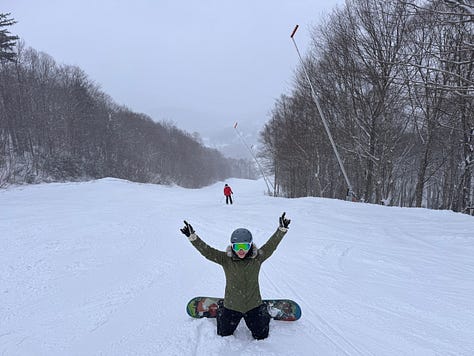

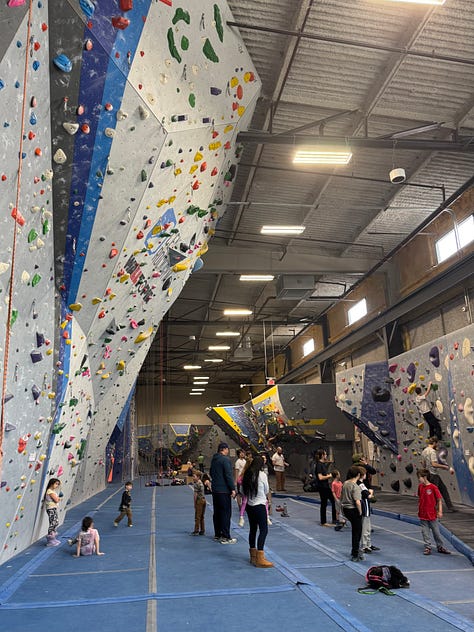
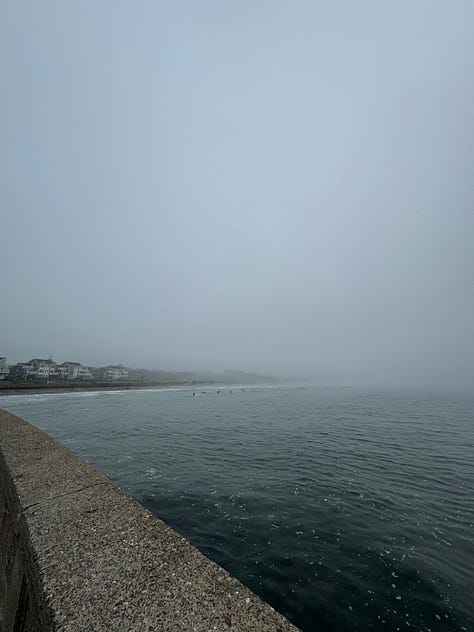
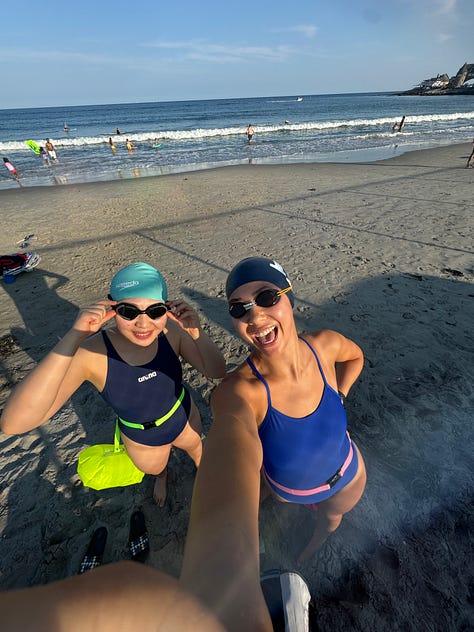
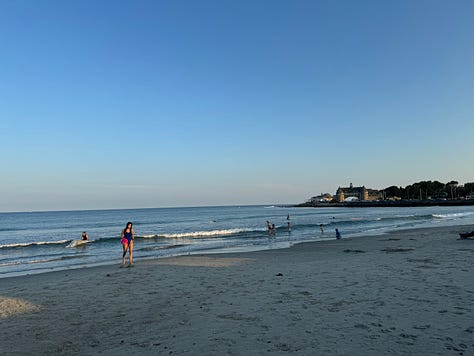
So where do we go from here?
I was always jealous of people who had clear-cut arrays of sustained interests because it seemed like they had a much easier time finding ‘their people,’ defining who they were, and sticking out from a crowd of normies like me. But just like I reject the need to construct my identity around one culture or my current job, I am learning to embrace being a serial hobbyist.
Hobbies are called hobbies for a reason — we are meant to enjoy them for their present value, rather than as some vague investment in our future credentials. So whether I stick to one or shop around a bit, life is equally long and beautiful. Being able to enjoy a wide range of interests means I can make the most of any community or setting, and every season presents something to look forward to. In colder months, I get to ski, snowboard, and climb with friends. On gloomy days, I can learn a new piano piece, have a wine & paint night at home, or work on a new woodworking project at the Brown Design Workshop. As it gets warmer, I’ll get to play tennis at whichever outdoor court is free, go on a photo walk, and maybe even train for a triathlon. In the summer, I might visit a national park, attend an amazing(ly) affordable Boston Symphony Orchestra concert at Tanglewood, or get to enjoy Fred’s top-notch watermelons and blog posts after a Narragansett Beach ocean swim.
Putting aside obsessions with monetization and reaching milestones means that no time spent doing something enjoyed will be a waste of time. At each point in my life, I’ll appreciate the excitement of being a beginner all over again, and I’ll be equally overjoyed to feel familiar happy neural pathways fire up when I return to an old pastime. I’ll look forward to meeting new people through new hobbies, and I’ll be equally thrilled to see familiar faces when I return to old stomping grounds. I’ll always be curious, and I’ll always be grateful for the color this brings to my life.
P.S. This article is possibly part 1 of 2, we’ll see if/when I get to a second post about this :P





This really hits home! I’ve gone through periods feeling this really strongly as well - like everything in my life (including hobbies) needed to have a very specific purpose/goal. But the truth is they don’t! While I’m still working on internalizing that, I think I’ve also embraced more of a serial hobbyist mentality over the last few months and have started trying out new things!